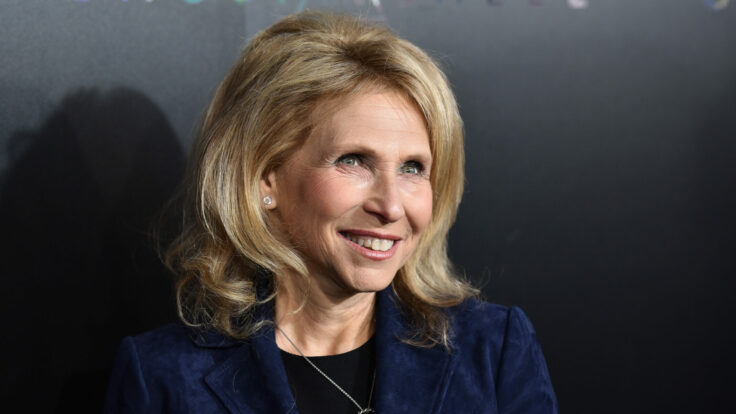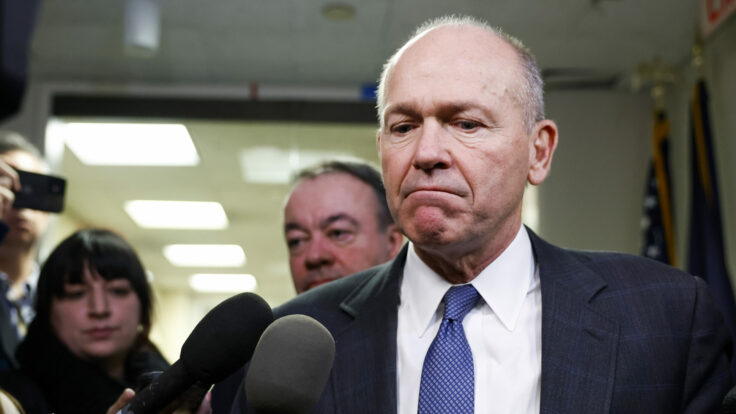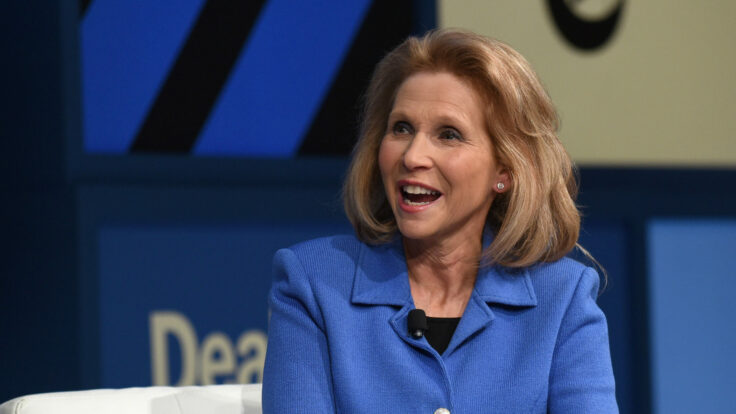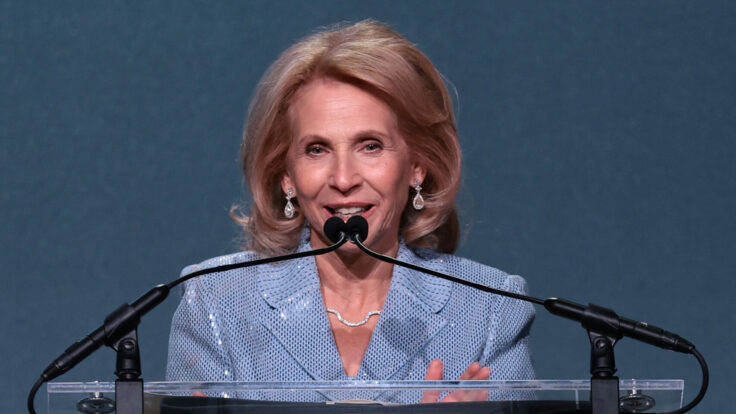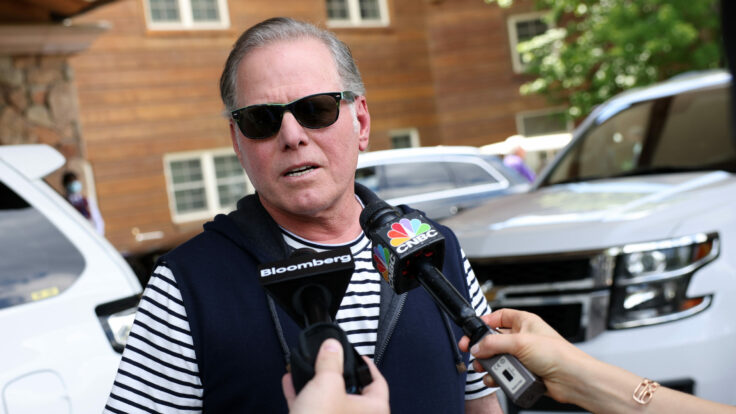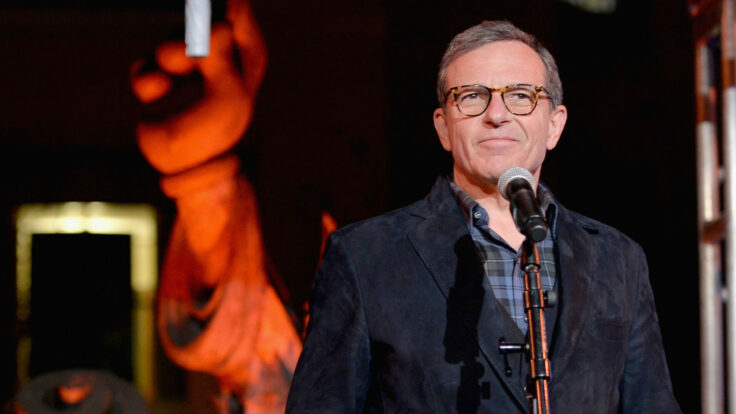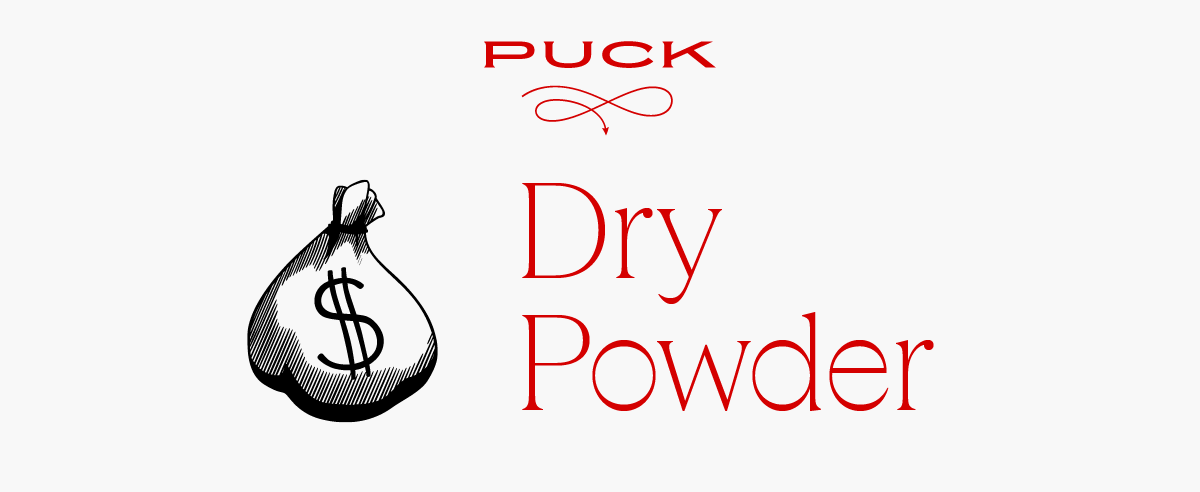 |
|
Welcome back to Dry Powder.
|
|
Happy Sunday. In today’s issue, I consider two questions that many Wall Streeters and Wall Street observers have asked themselves this past week: What’s the logic behind ex-Disney C.E.O. Bob Iger’s signing on as a venture partner with Thrive Capital, Josh Kushner’s New York-based V.C. shop? And what’s the skinny on Apollo co-founder Josh Harris’s alternative asset management firm, 26North? Then, I offer some notes on the loudest voices in the interest rate peanut gallery. I hope you enjoy.
|
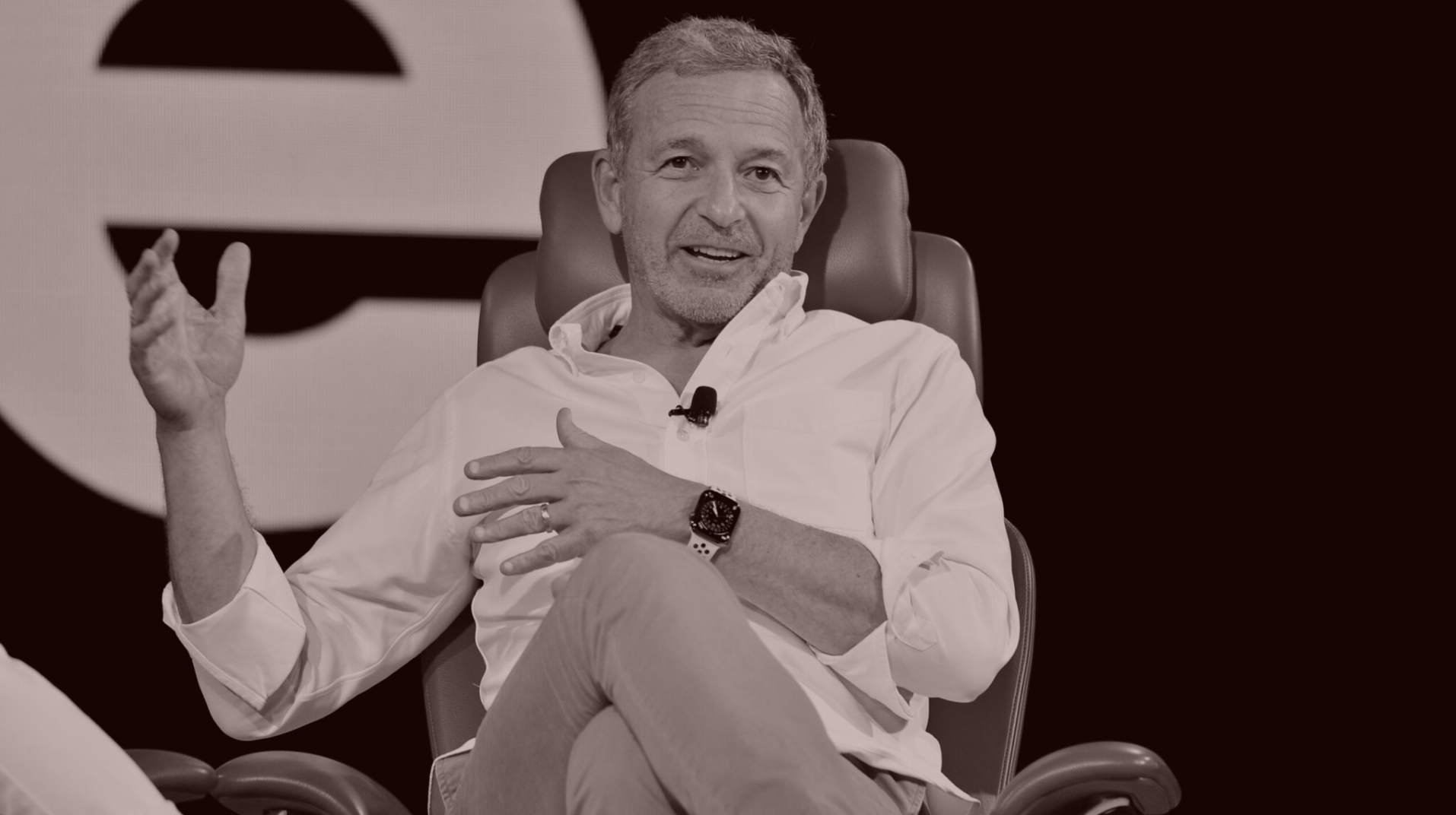 |
| Iger’s New Act, Apollo Drama, & JPow Tea Leaves |
| Observations on the great Wall Street stories of our age, or at least of this week: Josh Kushner’s new venture partner, Josh Harris’s $5 billion kiss-off to Leon Black, and the Elon-Cathie deflation delusion. |
|
|
|
| Bob Iger has had a strange and varied post-executive afterlife in the two years since announcing to Ben Smith that he was semi-un-retiring from Disney, after handing reins to his successor, Bob Chapek, in order to help steer the company through the Covid pandemic. Since then, of course, Iger has finally relaxed his grip on Disney, officially stepped away, and moved onto other projects, such as joining the board of Perfect Day, a dairy replacement company, and Genies, a digital avatar startup.
Earlier this week, Iger announced that he is going to be sprinkling some of his pixie dust on Thrive Capital, the New York-based V.C. shop run by Josh Kushner, as a venture partner. Josh, not to be confused with his older brother, Jared, has managed to keep his head about him as all others were losing theirs, to paraphrase Rudyard Kipling, and he’s built for himself a successful firm. Thrive Capital, which he founded as a 25-year-old scion in 2009, has some $16 billion in assets under management and closed, earlier this year, on its eighth fund, for about $3 billion.
Over the years, Thrive has invested in companies such as Instagram, Instacart, Robinhood, Spotify, Slack, Stripe, and Oscar Health, Inc., which Josh co-founded in 2012 and now has a market value of $1.2 billion, down by two-thirds in the past year. In short, Josh has been a success as an investor with a net worth, estimated by Forbes, at $2 billion these days, about double his brother’s net worth, even after the Saudis reportedly invested some $2 billion into Jared’s private equity fund. Apparently, Josh and Bob met through Josh’s wife, the supermodel Karlie Kloss, which seems to be a most Hollywood script-like way for them to get to know each other. How charming.
In a blog post announcing that Iger had joined Thrive, the firm said that he would “bring his experience and expertise to bear in mentoring our founders as they build iconic companies spanning multiple industries, including healthcare, consumer technology, financial services, enterprise software, and more,” adding that “today’s complex and dynamic times require bold leadership, and we can think of no one better suited than [Iger] to mentor Thrive companies as they forge new ground.”
Fair enough, even though I’m not exactly sure what it means that Bob Iger, the former Chairman and C.E.O. of Disney, will be mentoring “founders” as they “build iconic companies.” Sounds to me like Josh wanted to add Iger’s gravitas to his firm while Bob wanted a reputable sinecure from which he could do a little investing and have some conversations with young tech executives, and that he didn’t want to do the usual staid P.E. thing, and end up at, say, Carlyle, like George H. W. Bush once did. His former defenestrated deputies Tom Staggs and Kevin Mayer have an investment company that is affiliated with Blackstone. Jeffrey Katzenberg has his own venture firm in WndrCo. Iger recently told Kara Swisher that he has been invited onto many boards, as I’m sure he has, of course. But being the B.M.O.C. mentor at a respectable investment firm required some consideration.
Without doubt, Iger is one of the most successful media C.E.O.s of his generation, but his union with Thrive doesn’t exactly strike me as a match made in heaven. I don’t see Iger—who despite his achievements, spent 50 years in corporate America—having Marc Andreessen-like insights to share with young tech entrepreneurs. Nor do I imagine Iger, who is also managing his own disruptive tech investments, as a natural when it comes to offering pithy insights to the management teams in the Thrive portfolio, especially as he also spends more time with his five grandkids. (He wasn’t known for nurturing a farm team of talent in the generation below him at Disney. See Staggs and Mayer above.)
Nevertheless, good for him for wanting to actively share his experiences with mini-Igers when he could be playing golf, sailing on his yacht, or buying an N.B.A. team. (Iger’s interest in the Phoenix Suns, which my partner Matt Belloni previously reported, might have renewed legs as the team’s principal owner, Robert Sarver, looks increasingly imperiled after the N.B.A. suspended him for racist and misogynist behavior.) Anyway, it all seems harmless enough and yet another heartwarming example of, as F. Scott Fitzgerald wrote in The Great Gatsby, the “consoling proximity of millionaires,” er, billionaires.
|
|
|
| Last Friday, Josh Harris (ex-Apollo co-founder, as you know) launched a new alternative asset management firm called 26North with more than $5 billion in assets under management. It is the latest wrinkle in the fallout from Leon Black’s noisy and ignominious departure from the firm, and it has many on Wall Street scratching their heads. But, should it? Well, dear readers, you could also ask: Why do scorpions sting? Because that’s what they do. Why do defrocked private equity moguls start their own new firms? Because that’s what they do.
Harris is now 57 years old and supposedly worth around $6 billion, according to Forbes. He made an unsuccessful play to take over Apollo from Black, his co-founder, during the revelations about Black’s messy involvement with Jeffrey Epstein, among other questionable behaviors. But for still-mysterious reasons, Harris overplayed his hand and was shown the door out of Apollo. The firm is now being run by Marc Rowan, the third Apollo co-founder, who had been heading toward an early retirement when Black and Harris had their conflagration. The three of them remain Apollo’s largest shareholders, with Black owning 9.2 percent of Apollo, and Harris and Rowan owning 6.7 percent and 6.1 percent respectively. While Black is no longer on Apollo’s board of directors, Harris is, although it’s unclear if he will leave now that he has his own fund. I suppose Harris could argue that 26North, with $5 billion under management, is hardly a genuine competitor of Apollo’s, which has more than 100 times more A.U.M. And his Apollo stock alone is worth more than $2 billion these days, so that would give him reason enough to want to keep an eye on what his former buddy Rowan is doing. (It’s all pretty good so far, by the way. In a rough market, Apollo’s stock is up nearly 16 percent since Rowan became C.E.O. in March 2021.)
Whether Harris can recreate his Apollo success at 26North remains to be seen. His $5 billion to invest is not nothing obviously, although it’s a fraction of the big boys’ dry powder. That probably means that Harris, who also is the principal owner of the Philadelphia 76ers, and his 40 new colleagues at 26North will be sticking to smaller deals, at least for the time being. We’re also entering a time of a material change for private-equity dealmakers. The days of cheap, easy money are over. The good news for Harris is that prices have come down considerably, at least in the public markets, and may have further to go as Jerome Powell continues increasing interest rates.
The bad news is that sellers will need more time to adjust their expectations to the new, lower valuations, making them reluctant to sell, and banks and debt investors have become much more reluctant to lend. And then even if they are willing to do so, their money is much more expensive. What they are demanding to be paid for those loans and investments is much higher than it has been for more than a decade.
It’s a feather in Harris’s cap that the scandals surrounding his onetime mentor Leon Black did not trickle down to him. He obviously still has enough credibility with investors to raise the $5 billion, which is a lot for a first fund, and with Wall Street bankers et al to be able to attract 40 of them to 26North. I dare say that Leon, now 71 years old, and with a net worth of more than $8 billion, would not have nearly the same support these days if he wanted to try his hand at a new fund.
|
|
|
| The interest rate peanut gallery was exceptionally vocal this week, with my friend Elon calling on the Fed to cut interest rates by 25 basis points and my other friend Cathie Wood preparing for deflation and predicting the Fed will drop rates in the coming year. Meanwhile Ray Dalio and his sidekick Greg Jensen, at Bridgewater, predicted that continuing rate hikes to 4.5 percent could cause equity markets to sell off by another 20 percent. Are they onto something, some in finance wondered? And was JPow listening?
How anyone at this point could think that interest rates will drop in the coming year, or that the Fed will actually cut interest rates at its next meeting at the end of September, reminds me of what Samuel Johnson once said about second marriages—that they are “the triumph of hope over experience.” I have no idea why Elon would call for the Fed to cut interest rates by 25 basis points. He’s plenty smart enough to know that is not going to happen and that the Fed is almost certain to raise rates by at least 75 basis points next Wednesday. No doubt, he’s just enjoying his role as the world’s richest contrarian. But he’s as delusional about the direction of interest rates as he and his legal team are about the outcome of his pending litigation against Twitter in the Chancery Court, in Delaware.
The problem is that when someone like Elon Musk, with his 106 million Twitter followers, offers his belief that the Fed should cut interest rates, there’s a chance some people may actually believe him, and then foolishly bet on that outcome, only to lose money when the opposite actually happens. As for Cathie Wood, she’s the proverbial hedge fund manager “talking her book,” so that’s to be utterly discounted (as, frankly, people would be wise to do for nearly everything she says). She wants the Fed to cut interest rates because she’s backed up her truck to the equities of technology companies, such as her biggest holdings in Tesla, Zoom and Roku—down 24 percent, 57 percent and 69 percent so far this year, respectively—and that she no doubt expects will benefit from an unexpected cut in interest rates.
But this is just extreme foolishness, bordering on professional malpractice. Both Elon Musk and Cathie Wood know that Powell and his buddies at the Fed have no intention of even thinking about thinking about cutting interest rates until there is at least a hint of a moderation in the rate in inflation, which of course we all know has not happened yet and does not appear to be on the near-term horizon. In fact, Dalio and Jensen have it exactly right. There will be a negative correlation between the Fed’s campaign of forcing interest-rates higher and deflating stock and bond markets. Just like the Fed’s 13-year policy of driving interest rates to their lowest levels in recorded history after the 2008 financial crisis pushed stock and bond markets to record-high levels, now it’s time for the party to end and the painful hangover to commence.
It doesn’t take a rocket scientist to be able to take Powell at his word. This is what he said during his speech in Jackson Hole last month: “Restoring price stability will take some time and requires using our tools forcefully to bring demand and supply into better balance. Reducing inflation is likely to require a sustained period of below-trend growth. Moreover, there will very likely be some softening of labor market conditions. While higher interest rates, slower growth, and softer labor market conditions will bring down inflation, they will also bring some pain to households and businesses. These are the unfortunate costs of reducing inflation. But a failure to restore price stability would mean far greater pain.” I’m not the richest person in the world or a modestly successful money manager, but I’m inclined to believe JPow about what he and the Fed intends to do rather than rely on the pie-in-the-sky predictions of Elon or Cathie. Sorry, guys, it’s still as true as ever that you can’t fight the Fed.
|
|
|
|
| FOUR STORIES WE’RE TALKING ABOUT |
 |
| The Lasso Conundrum |
| How, exactly, are streaming blockbusters valued in the post-TV era of television? |
| MATTHEW BELLONI |
|
 |
|
 |
|
 |
| Kavanugh’s Triller Thriller |
| The onetime Hollywood wunderkind is backing a social media app—and battling a flurry of lawsuits. |
| ERIQ GARDNER |
|
|
|

|
|
|
| You received this message because you signed up to receive emails from Puck
Was this email forwarded to you?
Sign up for Puck here
Interested in exploring our newsletter offerings?
Manage your preferences
Puck is published by Heat Media LLC
227 W 17th St
New York, NY 10011
For support, just reply to this e-mail
For brand partnerships, email ads@puck.news
|
|
|





